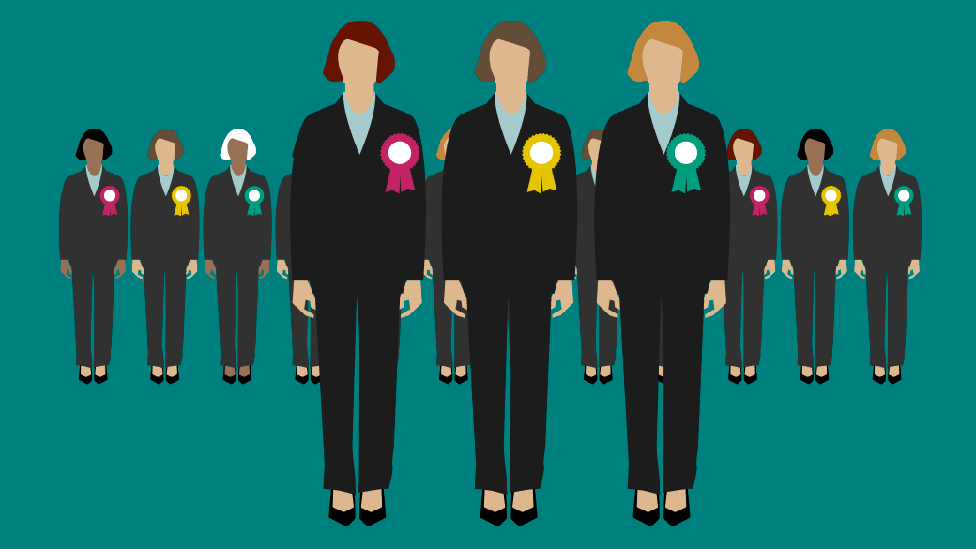Only one in four top Welsh council posts held by women
- Published
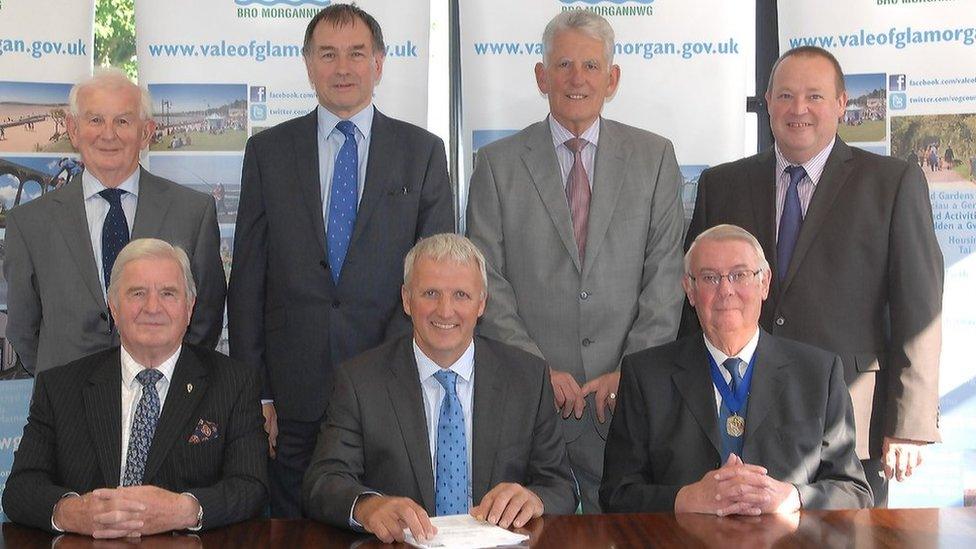
A team of seven white men are in charge at Vale of Glamorgan council
Women hold just one in four top elected positions in Welsh councils, new figures have revealed.
About 26% of cabinet positions in local authorities are held by women, compared to 30% in England, Electoral Reform Society (ERS) statistics show.
Two councils, Vale of Glamorgan and Blaenau Gwent, have all-white male cabinets.
The ERS said the lack of diversity was "damning". The Welsh Local Government Association said progress was "slow".
Gender equality charity Chwarae Teg said the figures were "frankly embarrassing" and women's needs could not be represented when they were not part of the decision-making process.
In 2016, more than half of the Welsh population was estimated to be female - with 1,579,112 women, compared to 1,534,038 men, external - according to Office of National Statistics figures.
But after May's local elections, there were 50 women in positions on Welsh council cabinets - the groups responsible for areas such as education and housing - compared to 188 men.

The number of female council leaders has doubled since the last elections, from two in 2012 to four in 2017, out of the potential 22 positions.
But two councils' decision-making groups are exclusively made up of white men, with a team of seven men in charge at Vale of Glamorgan, while five men make up Blaenau Gwent's cabinet.
Wrexham, Gwynedd, Merthyr Tydfil, Denbighshire and Bridgend all have just one female member - while in Anglesey the only woman cabinet member is council leader Llinos Medi.
But the picture varied across Wales and while no council reached 50% women in its top jobs, Caerphilly, Newport and Rhondda were at 44%, Carmarthenshire and Conwy were at 40%.
Ceredigion and Torfaen each had a 37.5% female cabinet.
ERS director Jessica Blair said: "This is a total failure of authorities to properly represent their electors and to encourage diversity.
"In 2017, we really should be doing better on an issue that is vital in ensuring our councils work as effectively as possible."
Elsewhere, five women hold positions in the assembly cabinet compared to seven men - meaning women make up 41% of Carwyn Jones' cabinet.
While the overall number of women councillors has increased - up from 26% in 2012 to 27.8% in 2017 - gender equality charity Chwarae Teg said the lack of women on cabinets meant they were not being represented.
Its chief executive Cerys Furlong said: "I find it frankly embarrassing that so little progress has been made by political parties in implementing the changes needed to deliver equality, and that, in the 21st Century, the status quo persists, where women's voices are largely absent from decision-making in our councils.
"The decisions made by these cabinets cannot truly reflect the needs of the women when policy is made without their experience, understanding and skills."
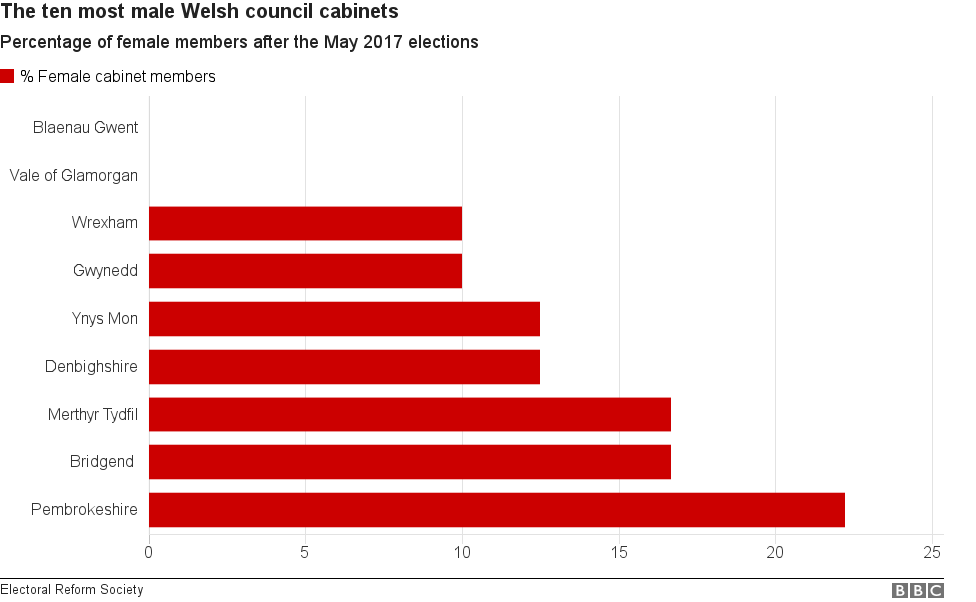
Blaenau Gwent cabinet said members were selected based on a "range of factors", including experience, regardless of gender. It said the council was proactive in creating opportunities for female members to gain more experience.
Vale of Glamorgan leader John Thomas pointed to the council having a woman mayor, adding it was felt councillors with the "most experience" were best placed to form the new cabinet.
"We will continue to work tirelessly to increase engagement with young people, to increase diversity and to attract new people into politics," he said.
The WLGA has a female leader for the first time, in Newport's Debbie Wilcox.
It said while improvements had been made, progress in terms of gender balance was "disappointingly slow".
- Published9 June 2017
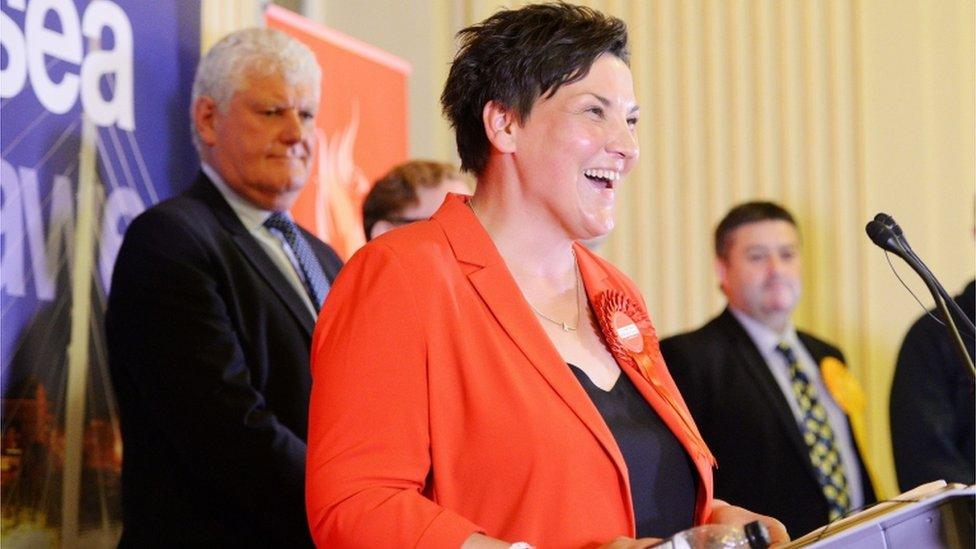
- Published16 February 2017

- Published20 May 2017
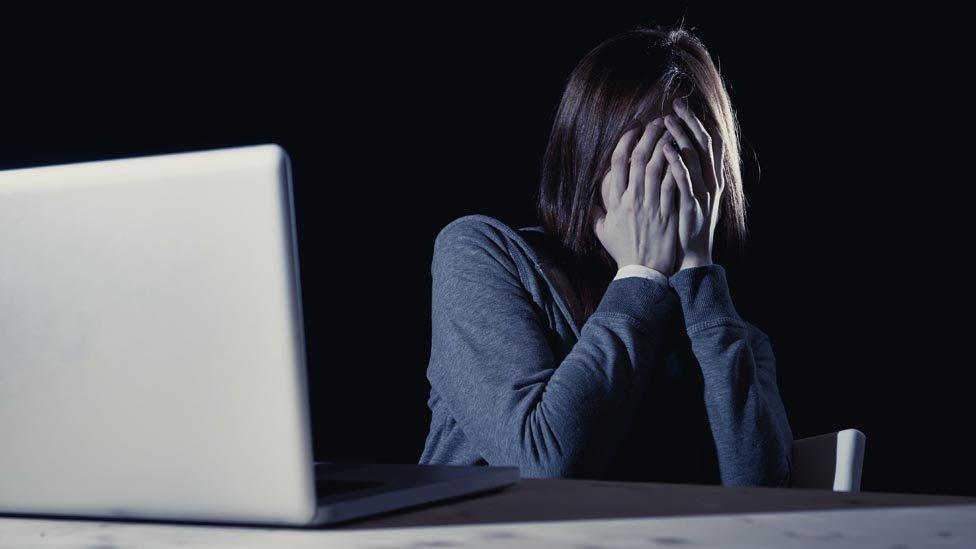
- Published4 June 2017
